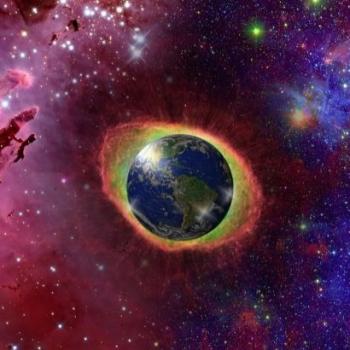Rummaging around in my directory of raw materials for possible blogs, I came across the following, posted as a note on Facebook about four years ago, inone of my very rare responses to a game request. (Often I unfriend the requesrer for wasting my time.) I had fun with this and it previewed several topics I’ve since written about. So enjoy.
1. Starting at UC Berkeley at age 16, I was invited to a reception to receive Honors at Entrance. I found my hand being shaken by Robert Gordon Sproul, President of the whole UC system, who thanked me for coming to his school. This was because of my 1580 on the SAT. And being 16, I didn’t figure out until afterward that I should have invited my parents to it.
2. An astronomer once told Bruce Armbruster that when he received his manuscript back from me, he was furious that anyone had dared to edit his writing, and mentioned this to Fred Hoyle. Hoyle said that he too was furious upon receiving the first manuscript of his that I had edited, but after 24 hours had decided he would have to work his way through it. He then discovered that everything I had done was right: correcting typos and errors, clarifying sentences, forcing him to think more carefully about what he had meant. So Sir Fred said to the other astronomer, “You have a right to be furious for a day, but after that, if you don’t benefit from an editor’s hard work, you’re a damned fool.”
3. I have a very complex theology but a very simple spiritual discipline, because, no matter how special you think you are, you do have to finally follow the instructions, just as everyone else must. That’s why I have 32 years sobriety.
4. When a totally committed couple who have no secrets from each other reach mutual orgasm, sometimes they break through the illusion that they are separate individuals and merge into a single personality. Afterward they know everything about each other, even though that knowledge cannot be stated in words. And sometimes they even awaken.
5. Having thought about the mathematics and theology of the infinite for approximately 52 years, I have concluded that there are an infinity of infinities, that every true deity is the unique ultimate reality, that our human distinctions between one and many, same and different, past and future, self and other, do not apply to the infinite, but that the mystery of gender is itself an ultimate reality.
6. I like surrealistic aphorisms and art that breaks through its frames.
7. Ontology recapitulates philology.
8. I am at an age when I do not write out of ambition, but because I love my children.
9. At My Age
I never see
Anyone new,
only ones who
remind me of
those I once loved.
10. There’s a joke about the college freshman who expects his philosophy course to answer his questions about the meaning of life and so on, but it never does, because academic turf wars prevent most college professors from even asking such questions. Well, right now I’m teaching a philosophy course, and I do ask and try to answer those questions. If not me, who?
11. One of my favorite insights is Neil Bohr’s remark that a profound truth is one whose exact opposite is also a profound truth. It’s fun collecting them.
12. I’ve been telling my philosophy students that philosophy depends on asking profoundly simple questions, such as, “Why is the sky dark at night?” The Hubble telescope has revealed that the expansion of the universe has been accelerating for the last five billion years. If you grasp the implications of that, then you may understand that perhaps Fred Hoyle should have received the Nobel Prize.
13. Someone once asked Blake what he saw when looking at a nearby tree. Blake responded, “I see an angel of the Lord pouring his grace down upon the Earth.” The questioner then said, “But Mr. Blake, surely you know that the angel is not really there.” I believe that Blake’s response meant, “Yes, I know the angel is not really there. What you do not understand is that the tree is not really there either.” That is, apparently Blake was the first to deduce that all human perception takes place by eidetic imagery.
14. I think all prophets must be reprobates, since anyone bound by ordinary rules could never do something so extraordinary as founding a genuinely new religion.
15. Have you ever considered the implications of the fact that the founders of the world’s major religions were all alive at the same time, ca. 500 BCE?
16. There were many decisions in my life that I can look back to and consider to have been mistakes, yet if I had made any one of them differently, I would probably be dead and would certainly not have my children.
17. Another profoundly simple question: “Why do we have two minds?” After conversing with Wolfgang Pauli, Jung suspected our bifurcation arises from the nature of subnulear reality. John Archibald Wheeler—probably the most skeptical hard scientist I have ever known—and his colleagues were forced to interpret the results of a key experiment as meaning that even electrons have a rudimentary form of consciousness. If consciousness is the ultimate reality, then our minds do not create consciousness; they merely concentrate it.
18. The most parsimonious concept of the Deep Mind is that it is a single consciousness, not limited by the Kantian a prioris that program our ordinary minds. That is, we are not ten billion isolated individuals; we are a single immortal being housed in ten billion bodies. Blake called that being the Giant Albion. Yes, I believe he had deduced that also.
19. When I was seventeen, my naivete was perhaps excusable, but not ten years later. Several women, old and good friends, single again, wanted me to make love to them, but I realized that only afterward. In each case, I never saw her again. I regret that I failed those friends when they needed comfort and reassurance. As Zorba said, the unforgiveable sin.
20. The last time a woman tried to seduce me I was 64; she was about 40. I wasn’t so much virtuous as married.
21. As Socrates said, the unexamined life is not worth living. However, the overexamined life is not worth shit either.
22. What is the difference between a game and an art form?
23. My academic studies started with mathematics, progressed into poetry, then reached into theology. Why? Because all three are systems for manipulating abstract symbols in order to create maps of possible realities. That is, all three are special cases of a more fundamental underlying system of analysis and synthesis.
24. Mathematicians burn out very young, but poets can keep going forever.
25. So why do the preceding constitute random facts about me? Because they’re the sort of things that I think about.














